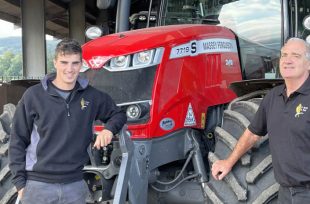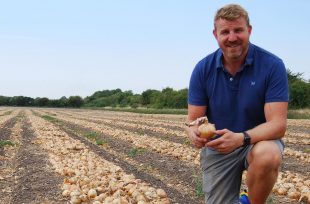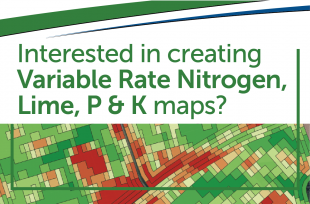Land can be the hero of the climate change piece, even if it usually painted as the villain. As we move to net zero people are realising that every material that we use in our lives needs to be made from sustainable materials that are grown, mined, or recycled. Much of our consumer society is built on fossil fuels being converted to nylon or plastics and made into products. They can instead be made from grown raw materials and so be much more sustainable.
So do we really change what we are doing to make our land sustainable? or do we chase the numbers? the blunt carbon foot printing algorithms that miss much of what is really happening.
For myself, I want to do my bit, while still being able to rely on farming to produce the income that my family needs. So, what do I do? I look at the detail of how to make my land more productive with fewer inputs. I use precision sampling to ensure an even, correct pH and so, improved fertiliser use efficiency. I apply products variably where applicable. I double-check this by measuring yields and nutrient quality of my products. I minimise fuel use by, using semi-automation to control applications and cultivations, reducing overlaps of both. Beyond this I care for my soil by minimising cultivation where possible and controlling the traffic to maintain good soil structure without damaging surplus cultivation. We dry grain and heat buildings using biofuels, we capture wind and solar energy. There is more that I need to do, more use of natural fertilisers, increased establishment of green cover crops. These are all good steps but are fundamentally playing at the fringes.
To really make a change we must realise that we need to embrace the new role that land is going to have. Maybe it will be storing carbon in the soil through growing more grass, perhaps perennial crops. My new foray is into hemp production. This is initially for a food product, but our group is looking at much wider markets; markets that will replace “mined” inputs with grown ones. Building materials such as hempcrete, hemp insulation, clothes materials made from grown hemp rather than oil-based synthetics, biodegradable plastics, and more. All of these have the potential to trap CO2 into products that remain in the community for multiple years and prevent excessive use of fossil fuels, and at the same time hemp is known to help store carbon deep into the soil through its natural ability to root so aggressively.
Recently, when showing people around our hemp field I was taken aback by one of the comments. People were waxing lyrical about all the potential markets and the green credentials of the hemp plant, when someone piped up “Yes, I believe that hemp is the only truly climate neutral plant.” I was shocked at how deep the level of misunderstanding and suspicion that has built up around farming and the environment. Of course, all plants are carbon positive, all plants suck CO2 from the air using the power of the sun, the more we grow, the less CO2 that there is in the air. This is what makes a mockery of government policies that seem to effectively encourage “fallow” fields.
So, what we need to do as land managers to help do our bit to save the planet, starts with as much photosynthesis and we can muster. We can try to do this with a low carbon cost (but not so low as to reduce the photosynthesis) and we can help to be part of the innovation process that means the carbon we capture is maintained in the environment in solid form for years to come.
So yes, standard carbon footprint reduction techniques are vital; precision farming, regenerative agriculture, using renewables, controlled traffic etc. But nothing trumps more than photosynthesis.
01 November 2021 Latest from the Directors

Featured Case Study
Angus Bryce, D Bryce & Sons
Find out more
Featured Case Study
Tim Young, JS Young Farms
Find out moreSave on costs by targeting your inputs to soil types and conditions.
Use our precision farming platform, eligible under the new SFI scheme in England!
Find out moreUse KORE, our independent precision farming platform to improve your client management, increase efficiency and enhance your agronomy and soil sampling services.
For more information call the office on 01356 650459 (option 1) or Ed on 07425 338545.

For XCN, GFX, NAV 900 and other Trimble RTX displays
Renew your RTX subscription from £260pa*
Find out moreIf you're feeling the winter blues about your RangePoint RTX renewal, warm up with a new subscription from only £260 pa*
SoilEssentials are your longstanding, independent Trimble authorised dealer in Scotland and Northern UK.
To renew your RangePoint RTX subscription call the office on 01356 650459 (option 1), Rod on 07824 617153 or Bob on 07827 480056.
*Ts&Cs apply. Price applies to a 5-year upfront contract. Open to all RTX customers.











